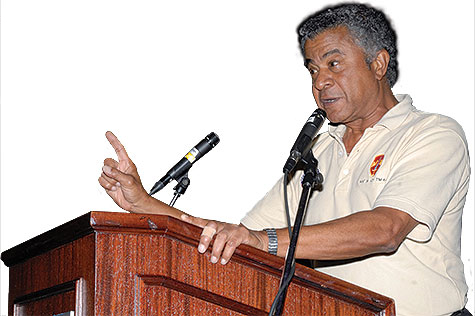 |
||||||||||||
|
November/December 2014 The Soldiers Project: Help For Young Veterans BY TUCKER SMALLWOOD As a MACV advisor in 1969 I commanded a five-man MAT team in the Mekong. One day I accompanied a PRU team on an ill-fated mission. I was gravely wounded and spent several months at Walter Reed. But I recovered fully, then resigned my commission to study acting in New York. I succeeded for ten years: Emmy nomination, commercials, Broadway, soap operas. I had friends, love, money; I cherished life. Then one day a kid ran out from Central Park, pointed a pistol at me, and pulled the trigger. The gun misfired. The kid ran off. That event triggered eight years of depression, destructive behavior, self-medication, and denial. Two VVA friends urged me to ask for help. I faced three hurdles: Accept that I need help, ask for help, find help. I got very lucky. I now live with PTSD, and I enjoy quality of life. But young people now are returning from two wars and multiple deployments, and many of them do not enjoy quality of life. They face an overwhelmed VA, too few treatment programs, insufficient therapists, and denial. I serve on the board of The Soldiers Project (TSP), a civilian initiative that has for ten years treated post-9/11 veterans and their loved ones. The care is free, open-ended, and confidential. Please visit our website, thesoldiersproject.org More than half of TSP referrals come from the VA. Many veterans distrust the VA and fear the stigma of asking for help. Privacy is fundamental. Healing PTSD happens in a closed room between a qualified therapist and a struggling veteran. Over time trust is earned and confidence grows. We can look objectively at our memories; we learn to recognize our triggers. We won’t forget, but maybe we can find forgiveness. PTSD is a lifelong condition, but proper care and medications can make life once more worth living. Many well-meaning organizations offer skydiving, skiing, whitewater rafting, horseback riding, and parades. None of these treat PTSD. Every parade ends, and the next day comes. The Soldiers Project annual budget is $500,000. That covers office rentals, communication, accounting, and two salaried employees. Everything else is donated, including therapists’ time. This is a lean, efficient initiative. I am asking VVA—I am asking us—to help underwrite our mission. Charity Watch rates veteran initiatives by how much of their donated money cares for veterans. Fisher House devotes 95 percent to veterans. The Soldiers Project devotes 88 percent. Wounded Warriors devotes 60 percent. TSP services are only available to post-9/11 veterans. I’m a longtime VVA life member. At VVA’s Leadership & Education Conference in Wichita I made my case and asked for support. I now ask all of VVA to validate our motto, Never again will one generation of veterans abandon another. Of all that VVA represents, I am proudest of that commitment. The next generation is here, and they need our help. We offer treatment in Chicago, Long Island, New York, Pennsylvania, Sacramento, Southern California, Washington, and Wyoming. More therapists in other locations are willing to help if we can find the resources to support them. Remember: I did very well for ten years before my wheels came off. We now see the tip of this iceberg; the need for treatment will increase in the years ahead. Support TSP in helping others. Let VVA walk the walk.
|
||||||||||||
|
|
||||||||||||
|
||||||||||||
8719 Colesville Road, Suite 100, Silver Spring. MD 20910 | www.vva.org | contact us |
||||||||||||









